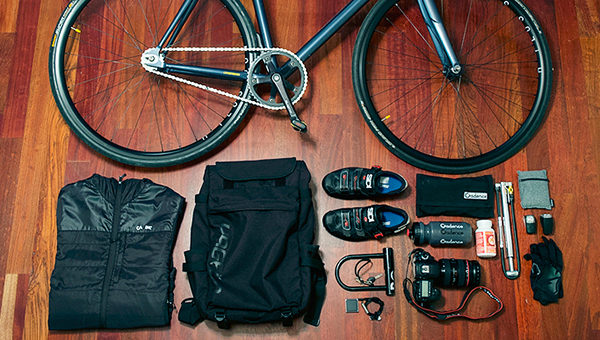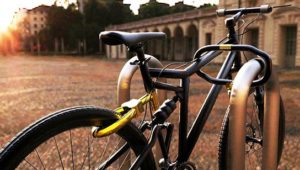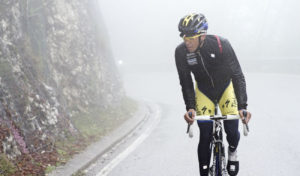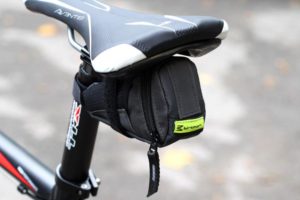Cycling can be an intimidating sport to get into, especially when you walk into a bike shop with no idea where to start. You may see a ton of kitted out riders with all the bells and whistles, but you really don’t need much to get started. The essential cycling accessories can not only be affordable, but can last you years to come.

What you need:
1. A Bike
Okay, this one is pretty self explanatory. Check out this article on “How to Choose Your First Road Bike” for more information.
2. A Helmet
The second most important piece of equipment after your bike should be a helmet. Whether you’re doing a five minute commute to work or heading out for a couple hours, never get on your bike without a helmet. There is not doubt a helmet can save your life, so ensure you get one that is a proper fit. On a side note, don’t be tempted by the UFO-looking aero helmets, unless you are a professional, you really don’t need it!
Core Accessories
These items may not be absolutely necessary, but they can definitely make cycling more enjoyable, especially when you’re just starting out.
A Bike Lock
Unless you plan on only riding from your house, and never stopping out on the road for a coffee or snack, then you’re going to need a bike lock. You may think the bigger the better, but the size of the lock is less important than the functionality. There are dozens of different bike locks on the market, so be sure to invest in one that can give you peace of mind when you have to leave your bike.
Cycling Clothing
Obviously you don’t need to go all in with the lycra to go on your first ride, but a couple staple items will make the experience a lot more comfortable. First is a waterproof jacket or shell that can keep you dry and warm even if the weather takes a turn for the worse. The second a solid pair of cycling shorts with a good chamois. These will feel awkward at first (kind of like wearing a diaper), but they allow you to feel more comfortable, powerful, and in control while on the bike. Cycling shorts will also allow you to ride for longer periods of time without discomfort or risk of saddle sores.
Many cyclists claim that you have to go with clipless pedals and cycling shoes to ensure efficient riding. True, this system does help you with power transfer, and can be a big step in improving your cycling, but you don’t necessarily need to start with them. Besides, the idea of being clipped into the bike can be daunting for a lot of beginners, so take you time and grow into the idea as you become more confident in your cycling skills.
Pump, Spares, Tools
You won’t want to have to end your ride and take your bike into the shop every time you get a flat. You’ll need both the tools and the know-how to take care of some of the most common bike fixes. A good tire pump, multi tool and spare tubes (if you have clincher tires) will go a long way to keep you out on the road. For some basic maintenance and repair, check out “101 Best Bike Repair and Maintenance Tips.”
A Water Bottle
Staying hydrated on your bike is key to both how you’ll feel and can affect your overall health. Ensure you always have water with you when you head out on a ride, whether in the water bottle and cage system, or a hydration pack.
A Saddle Bag
If something goes wrong on a ride and you’re stuck without tools and supplies, you’re walking or calling for help. It’s not so much having a tool for each and every issue, it’s about having the right tools and supplies to get you back on the road again. A saddle bag is the easiest way to carry all the essentials to keep you rolling.
Cycling Cap
A cycling cap is for both function and style. It keeps the sun out of your eyes as well as sweat and rain, and winter caps can keep you warm on a chilly day. Also, if you use your bike for commuting around town and are worried about having hemet-hair, a cycling cap can be a great lightweight fix.
Cycling Glasses
You may have a pair on sunglasses you’ll wear on those bright, summer days, but wearing glasses while on your bike can do more than shield from the sun. Glasses help break the wind when you’re riding, preventing eye irritation. They also work wonders to keep bugs, rain, and other debris from smacking you in the eyeball (which is not a pleasant experience). Many cycling glasses will come with interchangeable lenses, so you can wear the same pair no matter what the weather.